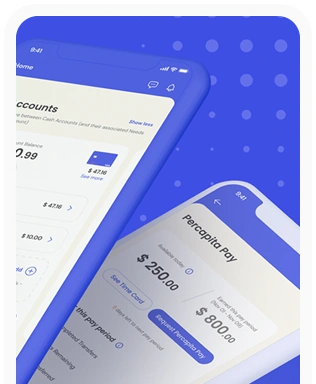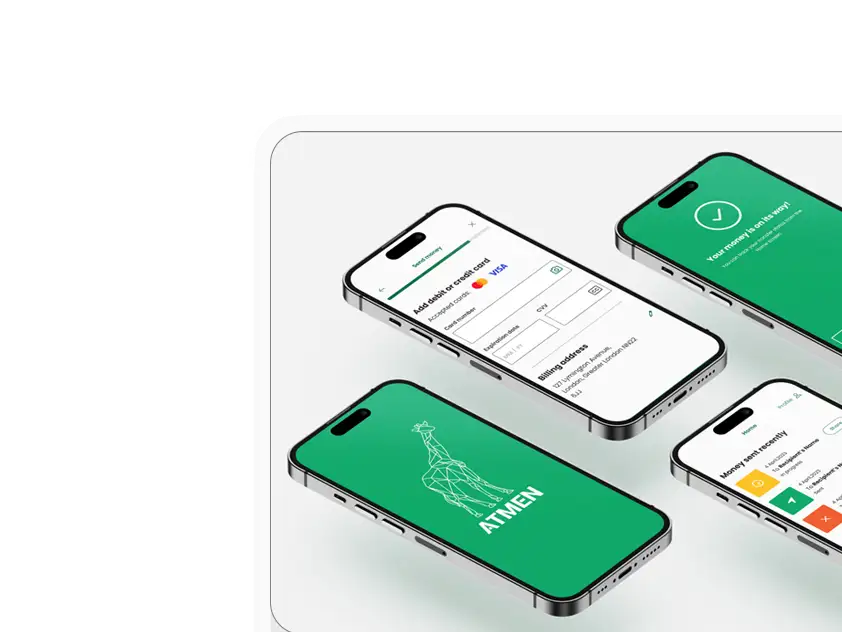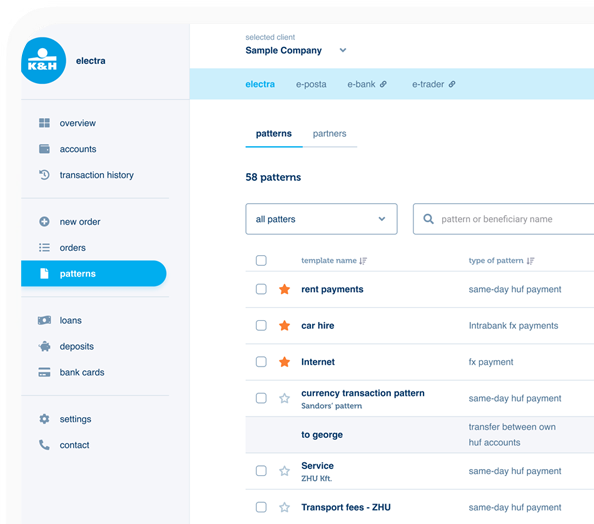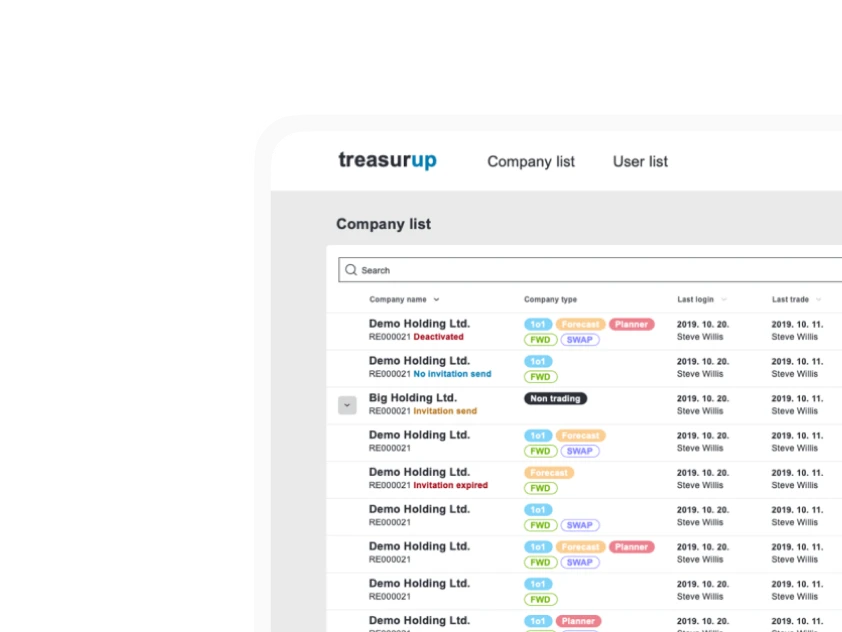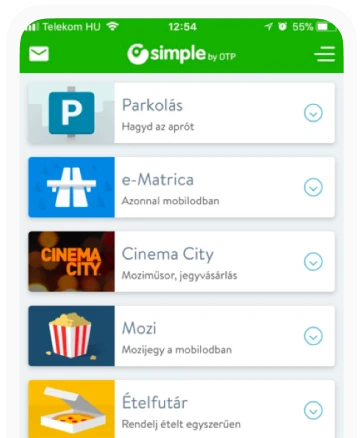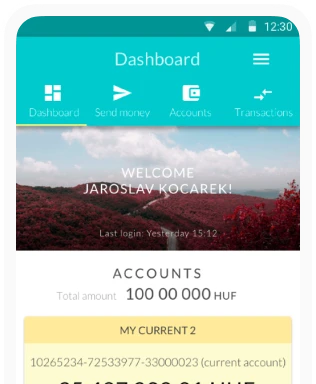Super Apps: From Messaging to Everything — and Will the West Catch On?
In Asia, a large portion of people use so-called super apps to manage most aspects of their lives, from ordering food to traveling, and even taking out loans. In Europe and North America, however, these services are less popular. What is the reason for this difference, and what might the future hold?
WeChat has 1.38 billion active users: that's how many people use the Chinese app monthly, making it the sixth-largest social platform in the world. However, it's not really, or rather, not just a social network. Although it originally started as a messaging app in 2011, and users can spend up to half an hour at a time scrolling through short videos on its platform, WeChat also offers many other services. It can be used for making payments, shopping online, booking travel, ordering food, or just killing time with a mini-game. There’s a reason it earned the “first super app” title, with a former WeChat executive, Kevin Shimota, using the term in the title of his recently published book.
The term "super app" itself was coined by Blackberry founder Mike Lazaridis, who in his speech at the 2010 Mobile World Congress foreshadowed the future. He defined a super app as "a closed ecosystem of many apps that people would use every day because they provide such a seamless, integrated, contextualized, and efficient experience." What was then just a concept is now one of the most important defining components of the internet market in many parts of the world. In its 2024 Hype Cycle forecast, research firm Gartner listed the advance of super apps among the three most important phenomena (the other two not surprisingly were AI and the growing concern about privacy and the use of personal data).
The Evolution of Super Apps: From Tuk-Tuks to Crypto
The idea that users can find everything in one place is, of course, not new. In fact, it's ancient. In the internet's early days, well before smartphones, the major players all built portals like Yahoo! or AOL, whose purpose was essentially similar: to open a gate to various internet services from a single location. Super apps revive and further develop this concept, but now at an incomparably higher level. The phenomenon is mainly characteristic of Asia, but super apps are popping up all over the world, least of all in the global West, the reasons for which we will return to later.
 WeChat self-service payment terminal (by Xuefei Wang, Pixabay)
WeChat self-service payment terminal (by Xuefei Wang, Pixabay)This process can be followed through the WeChat example. The app originally started as a simple messenger in 2011 (under the name Weixin). Soon after, they introduced a rudimentary newsfeed, similar to Facebook's, which so-called official accounts, i.e., companies, could also use for marketing and customer relations purposes. In 2013, the introduction of mobile payments was the breakthrough: users could not only send money to each other this way but could also use it for online and offline payments, and even for paying utility bills.
This coincided with the Chinese mobile and mobile payment boom; WeChat was in the right place at the right time. Development has been unbroken since then. In 2017, they introduced mini-apps within the ecosystem, through which companies could provide various services, from online commerce to food delivery to ride-sharing, and a million other things, all without the user having to leave the app. (The "million other things" is not a poetic exaggeration; there are indeed more than a million different services available on WeChat.)
From Ride-Hailing to Digital Bank and Microloans
Other super apps in Asia have followed a very similar path. Indonesia's Gojek grew out of a small motorcycle taxi service. Its name comes from "ojek" meaning motorcycle taxi. The company started with 20 of them in 2010. Five years later, they launched the app, and the rest is history. Soon food delivery, payment solutions, and even cleaning were added to the services. The story of Singapore-based (but operating throughout Southeast Asia) Grab is similar.
The basic idea here was also ride-hailing safe rides. It was inspired by one of the founder’s terrible taxi experiences in Kuala Lumpur and ranges from tuk-tuks to taxis depending on the city. Grab grew to the point of launching one of Singapore's first digital banks with great social sensitivity (the emphasis is on affordable, fast (approved in minutes) microloans). Loan shark activity in the region is a big problem.
 Super Apps: from Tuk-Tuks to digital banks (source: Grab)
Super Apps: from Tuk-Tuks to digital banks (source: Grab)The Japanese-developed but popular in Taiwan, Indonesia, and Thailand Line, or the South Korean KakaoTalk also started as messaging apps, before growing into the dominant super apps in their respective regions — so much so that Line recently launched its own cryptocurrency. And of course, we must also mention the other Chinese giant, Alipay, with 1.3 billion users, which, although it started as a payment app, can now be used to access ride-sharing and travel, and even book medical examinations and many other services.
Why Asia Specifically?
Neha Mehta, author of One Stop, a book about super apps, summarized in four points why Asian soil was the most suitable for super apps to grow out of:
- High mobile and smartphone penetration is, of course, a determining factor. The USA, China, India, and Indonesia are the four largest smartphone markets in the world. In Indonesia, 74% of the population, in China 57%, and in India 54% have smartphones, and internet usage has strongly shifted to these devices in recent years. The fact that people rely so much on these devices has paved the way for them to use services through these apps.
- The other important factor parallel to this is that there is a huge unbanked population in this region, i.e., those who have little or no access to basic banking services. According to a 2021 World Bank report, 1.7 billion people worldwide belong to this group, more than 70% of the population of Southeast Asia. Being unbanked means that the majority of these people do not have access to services such as cash withdrawal.
 An ATM in Kamshet, Pune, Maharashtra - something that super apps can make obsolete (by Zoshua Colah on Unsplash
An ATM in Kamshet, Pune, Maharashtra - something that super apps can make obsolete (by Zoshua Colah on Unsplash
Super apps essentially take over the role of banks: people can keep money in their digital wallets (there is no need for a minimum amount, as is often the case with opening a bank account), take out insurance, pay bills, and take out microloans. - The third factor is that many small entrepreneurs want to ‒ or have to, as it is so widespread ‒ accept electronic payments. Super apps entered the market when traditional card providers had not yet established strong positions, and ten years ago, they did not even pay much attention to e-commerce. Previously, the primary payment method was cash, so it was only one (albeit significant) step from pulling out cash to pulling out a mobile phone when paying in a store or even at the market.
In China, for example, Alipay is already the primary payment method, used by 900 million people domestically. All businesses have to do is open a corporate account, and they can start accepting payments. Added to this are state initiatives such as demonetization ‒ the withdrawal of currency ‒ in India, which paves the way for services like Paytm or BharatPe, digital wallets, to gain ground. - The fourth aspect is that in Asia, less attention is paid to the protection of personal data ‒ users simply do not worry as much about their personal data, focusing much more on the benefits and convenience, such as discounts or cashback.
Latin America: The Next Emerging Market?
The trend that dominates Asia is also increasingly present in Latin America. The growing integration of services, payment solutions, and delivery under a single platform is a widespread phenomenon there, too. The strong presence of fintech solutions is no coincidence, as there are many areas in South America that are underserved by traditional banking services, meaning digital wallets and other payment solutions play a significant role.
In the superapp market, Rappi, which originated in Colombia, is arguably the best known. This company also started with food delivery, but later expanded its portfolio to include online shopping, travel booking, and, during the COVID pandemic, various entertainment products like games and music streaming. Its payment solution is the RappiPay wallet, but it is also open to the more traditional financial sector, jointly issuing bank cards with Visa, and even acquiring a traditional banking license in 2022.
The Argentinian Mercado Libre, an e-commerce giant present in much of the region, has also been expanding in this direction for a long time. Building on its massive user base of hundreds of millions and its own payment platform called Mercado Pago, it has built an ecosystem where both users and businesses can thrive. For the latter, it offers not only a trading platform but also advertising services.
Beyond the region's strong players, other competitors can, of course, make an impact in individual countries. In Brazil, for example, Magazine Luiza (Magalu) has roots in retail but has now transformed into a super app, integrating e-commerce, a digital wallet (MagaluPay), and delivery/logistics. In addition to the main players, typically starting from online commerce and food delivery, traditional banks and even many telecom companies have recognized the potential in super apps, or at least in fintech solutions, and are launching their own digital platforms, payment solutions, and digital wallets, expanding by building on their existing customer base.
 Mercado Libre: from e-commerce to super app (source: Mercado Libre)
Mercado Libre: from e-commerce to super app (source: Mercado Libre)All Quiet on the Western Front…For Now
The fact that this model has not really spread in the West can also be traced back to some historical and cultural reasons. The "old" tech giants, such as Google, Apple, Amazon, Meta – or in finance, Visa and Mastercard – are all Western. They all more or less dominate a sector, which they cling to tooth and nail (and of course, vast financial and technological resources), which makes it difficult, if not impossible, for new players to enter. This world is also much more competitive; each player is trying to dominate their own area, which points towards specialized services, not integration.
In the West, the protection of personal data, both for individuals and in government regulation, is given much greater emphasis than elsewhere in the world. This may cause resistance to the super app idea, as people may wonder exactly with whom and how they are sharing their personal, financial, location data, and other information. Regulations such as the EU’s GDPR also limit what data can be collected and shared, which makes this type of integration difficult. Antitrust cases in previous years also call for caution as a potential super app could easily find itself subject to antitrust proceedings, or even broken up.
Westerners are much more accustomed to using separate apps for different purposes ‒ they shop, search, chat, and bank in different places. This deeply ingrained habit can make it difficult to introduce a super app. The financial world is also much more fragmented, with many types of debit and credit cards, competing neobanks, and digital wallet services. This is in stark contrast to the relatively uniform mobile payment solutions in Asia, which has facilitated the spread of super apps.
Cautious Steps in the West Towards Super Apps
Don't think, however, that there are no attempts, or that a super app could not grow out of an already well-established service in the West. Take Meta, for example, which has long been trying to bind its users closer to itself with new services. Facebook Marketplace, Meta Pay, the integration of Messenger and WhatsApp, and even Facebook Dating (!) all point in this direction. It would obviously be an exaggeration to call Facebook a super app in the classical sense, but it is definitely taking cautious steps in this direction.
Uber is also expanding with similar cautious steps, with Uber Eats competing with food delivery services in several countries and grocery shopping, and now even package delivery, are also available. (Similar movements can be observed with apps that were originally for food delivery, such as Foodpanda or Wolt; here, too, grocery shopping has been added to the services, obviously not independently of the challenges of the COVID era.) And we must also mention Elon Musk's X (formerly Twitter). Musk also embarked on the rebranding with the ambition of making X an "everything app," of which there are not many signs yet, but who knows what will come of it.
For the reasons outlined above, however, what we can expect in the West in terms of super apps ‒ at least in the near future ‒ are rather smaller integrations like these, such as the introduction of payment solutions into a social service. This comprehensive approach is likely to appear in smaller, specific areas such as finance and mobile payments, a good example of which could be the Hungarian Simple, which collects all kinds of purchasable things in one place, from bus tickets to parking to movie tickets or food orders, and which Ergomania also worked on in the past.

